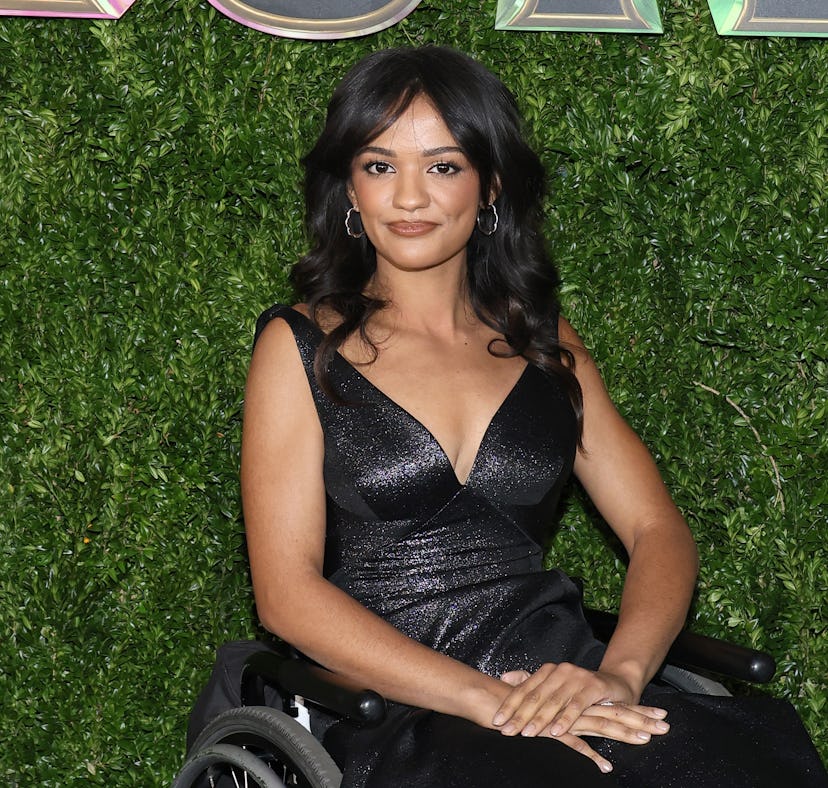
Marissa Bode On Why She Addressed Ableist Criticism Of Nessarose
“It goes beyond me and affects a whole community of people.”
In Wicked, Elphaba’s sister Nessarose is in a wheelchair, which plays a key part in how her story unfolds (hint: it involves magic slippers). And yet, Marissa Bode is the first actor with a disability to play the role. Throughout the film’s press tour, Bode has been outspoken about the deep meaning behind her portrayal of Nessarose. She’s also publicly addressed ableist comments from haters on social media. According to Bode, “starting the conversation” about this type of ableism was essential.
“Seeing joke after joke about the disability itself — something that is very real for more than just me — that’s when it becomes an issue,” Bode says. “Those types of comments that have happened on my page — and my disabled peers’ pages — prior to me even being cast in Wicked. It goes beyond me and affects a whole community of people.”
A conversation with Bode’s partner, Lauren Brooks, helped her land on how to address this type of commentary. “I was talking this through with my partner, who’s also disabled, and I was like, ‘As somebody who has a growing platform and who’s been so vocal about disability issues, I think it would be a disservice if this wasn’t something that I spoke out about, even if it is uncomfortable,’” she says. “Historically, I don’t think any progress that has been made has ever come with comfort. That’s just part of the process, and that’s OK.”
On Nov. 29, Bode responded to these harmful comments by posting a video on TikTok. Since speaking out, Bode has noticed some telling replies on her page. “It is OK for other people to watch that video and reflect and say, ‘Maybe that joke did hurt people, and I’m going to learn from that.’ I actually did end up seeing one or two comments like that,” she says. “Starting that conversation in the first place was important so that people can reflect.”
Bode adds, “I know I’m not gonna change the whole entire internet, and I know a lot of people are able to hide behind a screen and not fully reflect, but I think just putting that [perspective] into people’s head in the first place is a great place to start.”
In the now-viral video, Bode clarified the difference between hating on Nessa versus her disability. “Not liking Nessa herself is OK because she is fictional. That’s totally fine,” she said in the video. “Aggressive comments and jokes about Nessa’s disability itself is deeply uncomfortable because disability is not fictional.”
She continued in the TikTok, “At the end of the day, me, Marissa, is the person that is still disabled and in a wheelchair. And so it is simply a low-hanging fruit that too many of you are comfortable taking.”
Bode has previously spoken about the importance of disability representation in casting. “It means so so much to me to be representation for so many disabled people out there, and to hopefully let them know to advocate for themselves, ask for your accommodations, never feel like you’re asking for too much, and to do your best to follow your dreams,” she told The Hollywood Reporter at the Los Angeles premiere on Nov. 9.